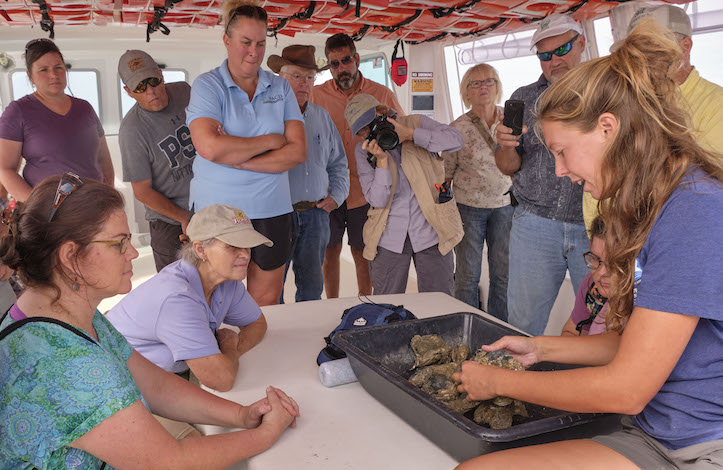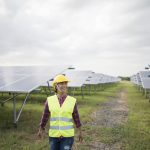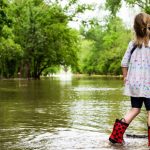Pennsylvania farmers harvested oysters, set crab traps and tested the nitrogen content of Chesapeake Bay water during a three-day, hands-on learning experience.
HARRISBURG, Pa. – Pennsylvania farmers and conservation professionals just spent some time on Chesapeake Bay to gain firsthand experience with the impact they have on the water – and on those who depend on the bay to make their living.
Agriculture is a major source of sediment and nutrient pollution in the Chesapeake Bay watershed. The Pennsylvania farm couples spent three days on the bay, setting crab traps, harvesting oysters and checking nitrogen levels in the water, and spent time with “watermen,” people who depend on the bay for their livelihood.
Bill Chain, senior agriculture program manager for the Chesapeake Bay Foundation, called it an eye-opening experience.
“We all have so much in common,” he said, “and when we talk about ‘the person downstream,’ these farmers have a real visual on what that looks like.”
He adds that Pennsylvania farmers are proud of the progress they’ve made in controlling agricultural runoff, but they need state assistance to meet clean-water goals.
Water quality has a huge impact not only on Chesapeake Bay, but also on drinking water, fishing and recreation in Pennsylvania. So, Chain points out that expecting farmers to bear the entire water-cleanup burden isn’t reasonable.
“Part of that has got to be a state commitment to an agricultural cost-share program, and we need our legislature to commit both leadership and financial responsibility to that effort.”
Chain said dairy farmers in particular have seen several years of low milk prices and already are struggling to make ends meet. Helping farmers understand the importance of conservation measures – such as planting trees along streams, switching to no-till farming and growing cover crops – is a win for everyone, he said.
“Providing the resiliency for the crop to get through periods of drought and heavy rain events,” he said, “but also really adding to the value of good clean water rolling off of their farm into nearby streams and our Pennsylvania rivers.”
The Chesapeake Bay Foundation is hoping to organize future trips for farmers to visit the bay, and watermen working on the Bay have said they’d like to visit some Pennsylvania farms as well.
More information is online at cbf.org.




